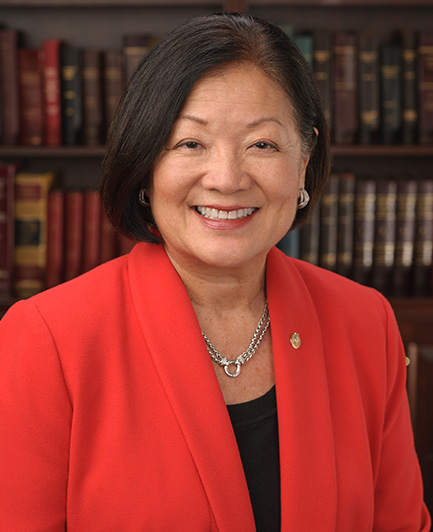On a nearly unanimous vote, the Senate Thursday passed legislation aimed at speeding federal investigations of hate crimes against Asian Americans related to the COVID-19 pandemic.
“Passing the Covid-19 Hate Crimes Act sends a clear and unmistakable message of solidarity to the (Asian American-Pacific Islander) community,” said Sen. Mazie Hirono, D-Hawaii, who introduced the bill last month. “This moment would not be possible without the collective efforts of so many people including my Republican colleagues.”
The Senate vote to pass the hate crimes bill was 94-1, with Missouri Republican Sen. Josh Hawley the lone opponent. The legislation now goes to the House for a final vote, which is likely next month, according to Rep. Grace Meng, D-New York, sponsor of an identical House bill.
President Joe Biden supports the legislation.
“Today, the Senate said enough is enough, and underscored loud and clear that there is no place for hate anywhere in our society,” Meng said in a statement after the Senate vote. “More reporting of hate crimes will provide us with increased data and a more accurate picture of the attacks that have been occurring against those of Asian descent, and a more centralized and unified way of reviewing these crimes would help to address the problem in a more effective manner.”
In addition to speeding federal probes of hate crimes against Asian Americans, the measure directs the Department of Justice to provide state and local law enforcement agencies with guidelines for establishing hate crimes reporting systems in multiple languages. The Justice Department and the Department of Health and Human Services also would work with community groups to eliminate discriminatory language in materials related to the pandemic.
Within the past few months, the country has seen a startling rise in the number of cases of violence against Asian Americans, including the March 16 shooting of six Asian American women in Atlanta.
Research released by Stop AAPI Hate, a nonprofit group, revealed nearly 3,800 incidents were reported over the course of roughly a year during the pandemic.
Verbal harassment and shunning were the most common types of discrimination, making up 68.1 percent and 20.5 percent of the reports, respectively, the group found. The third category, physical assault, made up 11.1 percent of the total incidents. More than a third of incidents occurred at businesses, while a quarter took place in public streets.
Despite Congress, human rights groups, the press and social media taking notice of these hate crimes now, this is not a recent phenomenon, said author William Ming Liu.
Liu compared the situation to how the frequent video recording of police violence on Blacks caused people to think it’s a recent phenomenon.
“People are much smarter and more willing to record these things, but in terms of overall violence and abuse, that’s always been there,” Liu said in an interview with Capital News Service.
Tiffany Chang, director of community engagement for Asians Advancing Justice, said an annual increase of 150 percent in hate crimes is an incredibly shocking number considering that the country has been in a pandemic. She said that many of the victims were likely people simply going out for supplies or were essential workers.
The anti-Asian rhetoric used by former President Donald Trump as the pandemic intensified was a key factor in encouraging hate crimes and discrimination against Asian Americans, Chang and other researchers said.
“There was a press conference with footage of him crossing out the word ‘coronavirus’ on his talking points and writing in ‘China virus,’ as if to deliberately stoke animosity against Asians and Asian Americans, Chinese Americans in particular,” Chang said.
This scapegoating gives people who are angry at the state of affairs created by the pandemic an outlet, she added.
It doesn’t help that there are so few Asian Americans in the higher levels of government, said Jonathan Law, an organizer for Baltimore Asian American Resistance, which seeks to address systemic problems facing Asian-Americans.
According to Chang, Asian Americans have been trying to protect themselves by sticking closely together. Families have been telling their grandparents and parents not to go out alone or to ask someone to run their errands for them.
Chang’s Asians Advancing Justice have been working with another activist group to provide free, online bystander intervention training to anyone who wishes to learn practical techniques to help someone being attacked or harassed in public.
Chang said that of the 30,000 people trained, nearly 100 percent have said they were confident that they could do something if they saw harassment occurring.
Although Liu is glad to see so many Asian Americans come together on this, he said he wishes he saw more of a multicultural coalition against hate crimes and discrimination.
“There’s nothing worse for someone who believes in white supremacy to see a multi-racial coalition protecting themselves,” Liu said.

